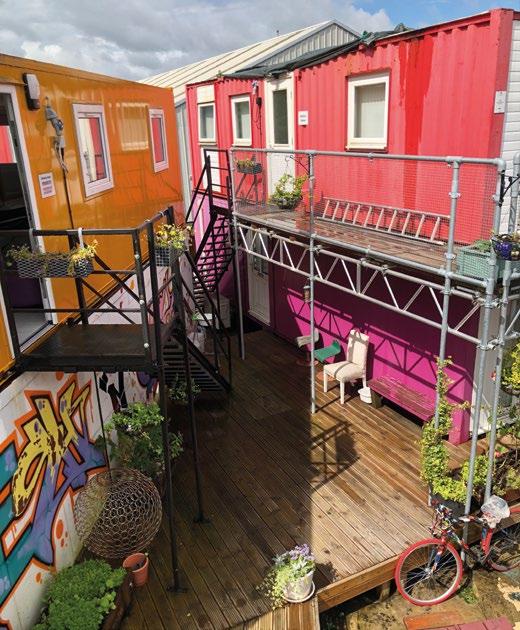Volunteering The local, voluntary groups that sprung up around Bristol since March 2020 have been a lifeline for many. Hal Arnold-Forster investigates how these informal groups played a vital role in ensuring residents were looked out for during the pandemic, and how their work can contribute to the city’s voluntary, community and social enterprise sector in the future. Volunteering became front page news during the pandemic, with calls for volunteers often yielding impressive results. More than 750,000 signed up for the NHS volunteer scheme, while 9,000 applied to help via ‘Can do Bristol’. At the same time, many volunteered their time through newly-founded mutual aid groups and other self-organised, community groups. At the time of writing, 4,300 of these groups were registered in the UK, with 50 of these in Bristol. These grassroots, community-level groups played a vital role. Their organisational flexibility, which gave them a great deal of agility, combined with their indepth knowledge of local communities, allowed them to uncover and address local needs in the earliest days of the pandemic. Even before the first lockdown was announced in March 2020, many communities had organised food deliveries, prescription pick-ups and neighbourhood befriending. Once local authorities and established voluntary, community and social enterprise (VCSE) organisations had co-ordinated their responses, community-level voluntary groups remained indispensable, often filling gaps in pre-Covid provision. However, these groups rarely achieved such success alone. For all the agility these groups possess, they often lacked the resources and infrastructure of established
organisations. As such, they have benefitted greatly from facilitative relationships with larger organisations and local authorities, which provided community groups with access to resources and advice while granting them the discretion to use their local expertise and close-tothe-ground capacity as they saw fit. These partnerships have often been key in allowing groups to sustain or scale up their services.
Volunteering during the pandemic: Research findings Those who took part in this research spanned a wide range of organisations from the VCSE sector in Bristol. Most were volunteers from Covid response groups working at the community level, however, this research also included participants from more established community organisations, city-wide VCSE organisations and the city council. THE POWER OF COMMUNITY When the pandemic began, many residents across Bristol were placed in precarious situations, often faced with isolation and insecure access to essential supplies. In
10






